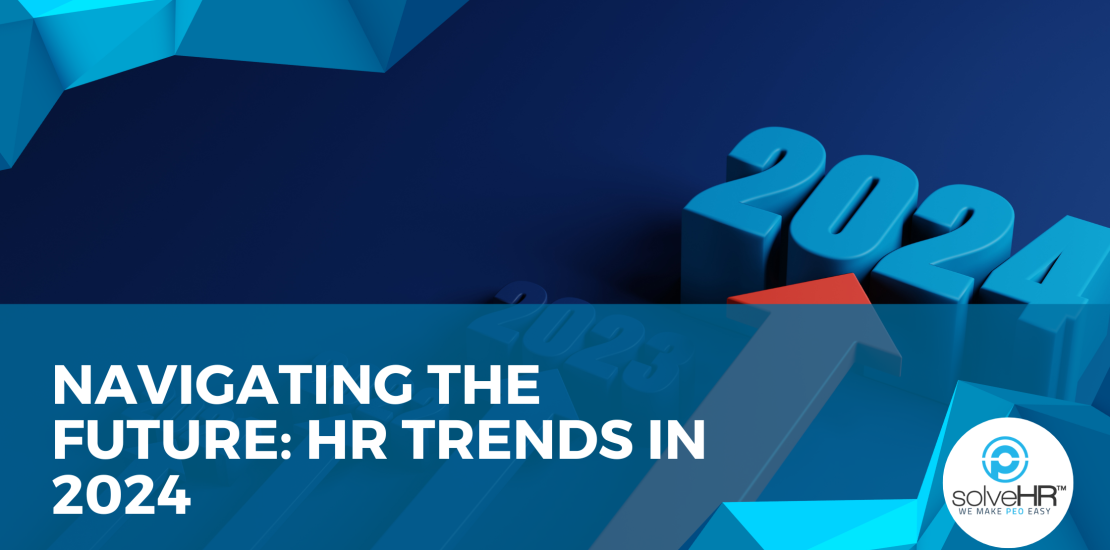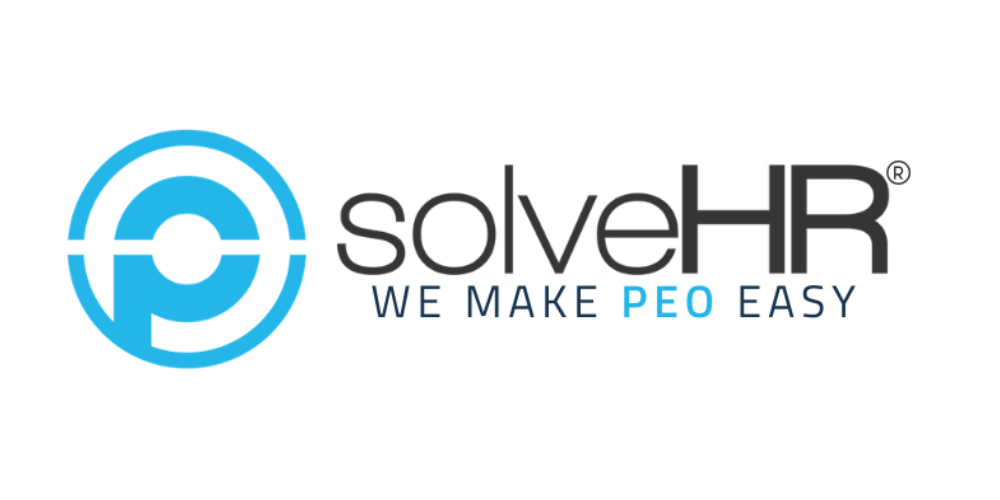- 01/17/2024
- Posted by: Matt Muriel
- Category: Uncategorized

In the dynamic landscape of human resources, staying ahead of the curve is essential for success. As we step into 2024, the HR landscape is witnessing transformative trends that redefine how organizations attract, engage, and retain talent. From the integration of cutting-edge technologies to adapting to the preferences of a new generation entering the workforce, the HR domain is undergoing a remarkable evolution. In this blog, we’ll explore five of the most prominent HR trends shaping the professional landscape in 2024.
HR Trends
1. Generative AI in HR:
In the realm of HR, the infusion of Generative AI is akin to opening a door to unparalleled efficiency and innovation. This transformative technology is revolutionizing mundane tasks, allowing HR professionals to redirect their focus towards more strategic endeavors. Automation of routine activities such as resume screening and data analysis not only accelerates processes but also minimizes errors, ensuring that HR teams can make informed decisions. Predictive analytics, powered by Generative AI, provides valuable insights into candidate sourcing, enabling organizations to identify top talent with precision. As this technology becomes an integral part of HR workflows, professionals can anticipate a shift towards a more data-driven and streamlined approach, ultimately enhancing the overall effectiveness of HR operations.
The integration of Generative AI doesn’t stop at recruitment; it extends to employee development and engagement. AI-driven tools can assess individual skills and learning preferences, tailoring training programs to meet the unique needs of each employee. This personalization not only accelerates learning but also contributes to a culture of continuous improvement. With Generative AI at the helm, HR is not just a spectator in the digital revolution; it’s a driving force, shaping a future where human potential is maximized through the synergy of technology and strategic decision-making.
2. More Gen Z Entering the Workplace:
The influx of Gen Z into the workforce is reshaping the dynamics of organizational culture and employee expectations. Born into a world saturated with technology, Gen Z brings a digital fluency that demands a tech-forward workplace. Communication preferences shift towards instant messaging and collaborative digital platforms, prompting HR to invest in tools that facilitate seamless remote collaboration. Beyond technology, Gen Z values diversity, inclusion, and social responsibility. HR strategies must align with these values, fostering an environment where individuals feel seen, heard, and empowered to contribute their unique perspectives.
Recognizing the entrepreneurial spirit of Gen Z, HR is adapting by providing opportunities for skill development and career growth. Mentorship programs and clear paths for advancement become crucial components of HR initiatives. Moreover, organizations that embrace transparency and authenticity in their communication will resonate more with this generation. As Gen Z becomes a driving force in the workforce, HR’s ability to understand, connect with, and support these individuals will be pivotal in attracting and retaining the talent that propels organizations into the future.
3. Flexible Working:
In the wake of the digital age, flexible working has emerged as a cornerstone of modern HR strategies. The traditional 9-to-5 model is giving way to a more adaptive approach, with remote and hybrid work gaining prominence. Advanced collaboration tools enable seamless communication and project management, transcending geographical boundaries. HR policies are evolving to accommodate diverse work preferences, recognizing that a one-size-fits-all approach is no longer sustainable. The shift towards flexible working not only enhances employee satisfaction and work-life balance but also opens up new avenues for talent acquisition, as organizations can tap into a global pool of skilled professionals. As HR embraces flexibility, it becomes a catalyst for unlocking the full potential of a workforce that thrives in a dynamic and adaptable environment.
Beyond the logistical advantages, flexible working has profound implications for employee well-being. By allowing individuals to tailor their work hours and environment to suit their needs, organizations demonstrate a commitment to the holistic health of their workforce. This trend extends beyond remote work, encompassing policies that support alternative work arrangements, such as compressed workweeks or flexible scheduling. As HR pioneers this shift, it becomes a champion for a healthier work-life integration, fostering a culture where productivity and employee satisfaction go hand in hand.
4. Upskilling and Reskilling the Workforce:
In the fast-paced landscape of technological innovation, upskilling and reskilling have become imperatives for maintaining a competitive edge. HR is taking a proactive role in driving continuous learning initiatives that empower employees to acquire new skills and adapt to evolving job requirements. From coding bootcamps to leadership development programs, organizations are investing in diverse learning opportunities. This not only ensures that employees remain relevant in their roles but also prepares them for career advancement within the company. Upskilling and reskilling initiatives not only benefit individuals but also contribute to a more agile and future-ready organization.
The emphasis on learning goes beyond technical skills; soft skills such as adaptability, communication, and critical thinking are also in focus. HR professionals are leveraging technology to deliver personalized learning experiences tailored to each employee’s strengths and growth areas. By fostering a culture of continuous learning, organizations signal their commitment to employee development, leading to higher job satisfaction and increased loyalty. As HR becomes a steward of lifelong learning, it propels organizations towards a future where adaptability is a core competency, and every employee is equipped to thrive in an ever-evolving professional landscape.
5. Staff Retention:
In the competitive talent landscape of 2024, staff retention takes center stage as organizations recognize the strategic importance of retaining their top talent. HR professionals are implementing personalized employee engagement strategies to create a workplace that goes beyond meeting basic needs. Transparent communication channels are essential, providing employees with a sense of connection to the organization’s mission and values. By fostering an inclusive culture that celebrates diversity and individual contributions, HR becomes a key driver in creating a workplace where every team member feels valued and motivated.
Comprehensive well-being programs are integral to staff retention efforts. HR is prioritizing initiatives that address the holistic health of employees, encompassing physical, mental, and emotional well-being. Flexible benefits, mental health resources, and work-life balance policies contribute to a supportive environment where employees can thrive both personally and professionally. As organizations increasingly recognize the link between employee well-being and productivity, HR’s role in championing these initiatives becomes pivotal in building a resilient and engaged workforce.
Employee retention is not solely about preventing departures but also about providing opportunities for growth and advancement. HR professionals are developing clear career paths, mentorship programs, and skill development opportunities to showcase a commitment to the professional development of their workforce. By investing in the long-term success of employees, HR plays a strategic role in building a loyal and motivated team that forms the backbone of a successful and sustainable organization.
As we embrace the trends shaping HR in 2024, one thing becomes clear: the role of HR professionals is more critical than ever. Whether leveraging the power of AI, adapting to the preferences of a new generation, or prioritizing employee well-being, the future of HR is dynamic and promising. By aligning with these trends, organizations can not only navigate the complexities of the modern workplace but also thrive in an era of constant change. The journey ahead is exciting, and those who embrace these trends will undoubtedly lead the way in creating workplaces that inspire, engage, and endure.

